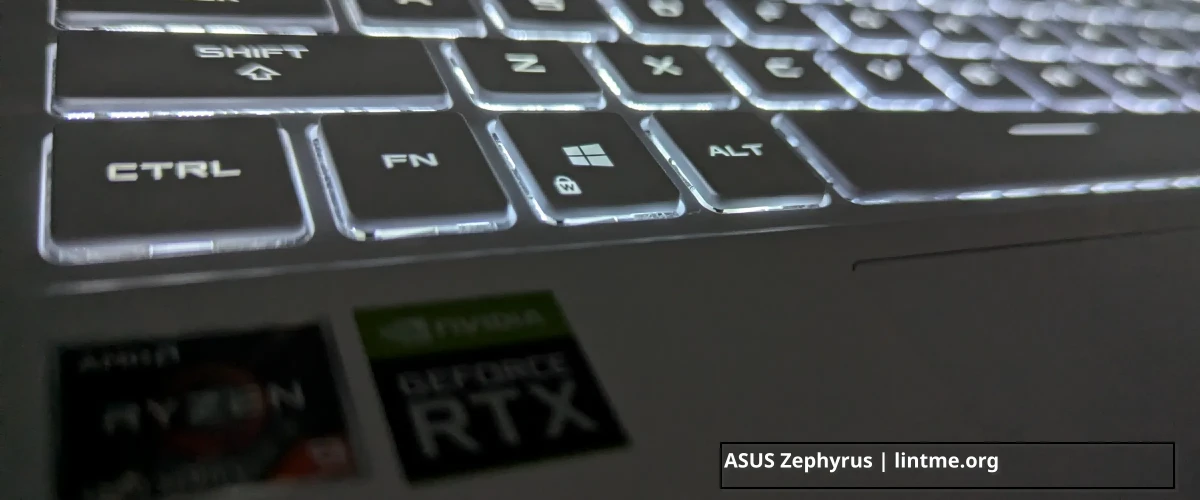This timeline documents events as they happened in time while running Linux on an ASUS Zephyrus G15 laptop which I bought in March 2022. Explore this laptop’s journey as we test and search for the best distributions based on the hardware configuration.
Timeline
Manjaro Gnome Minimal Edition
The install went by fast and after booting, I got to work removing the green theming and tweaking some of the Gnome Settings like power management SSH logins.
I used the GUI to apply the first significant system update to test the rumor that Manjaro breaks. While maybe true in the past, this is no longer so. The update completed just fine.
Installed Harrison Mixbus and configured the DAW to work with the Behringer U-PHORIA UMC404HD audio interface.
Had to make adjustments to ulimit
CachyOS KDE Plasma
Based on positive online reviews, I tested CachyOS and was so impressed that I installed it shortly after. The first thing I noticed was that my studio monitors no longer pop like they used to before logging in to Gnome.
Can I get used to KDE Plasma?
One day later, the first update for CachyOS, 467.32 MB, installed with no issues. Found out that KDE can limit the battery charge without installing a plugin. Set it to 60%. Nice!
After a long hectic day, I run a ~150 MB update. No issues but this would change by tomorrow.
Booted the laptop this morning and noticed that, for some reason, CUDA had disappeared. Since I still had all of the installation steps fresh on my mind, I quickly reinstalled and CUDA was, once again, back.
After today’s update:
Issue with power profiles
Issues with battery charge limit
Installed tlp (will update after testing)
Puzzled by why all of a sudden the battery started to fully charge again, I decided to once more install as I did not like the tlp configuration. For now, the power profiles seem to be working.
307.17 MB update
cachyos-v3/nvidia-utils 560.35.03-4
Reboot > Blank screen , no panel.
Ctl + Alt + Del > Reboot fixed the issue.
470.74 MB update – Issues after rebooting! Needed to set up external monitor resolution plus align the laptop display to the correct side.
Massive 675.30 update! Rebooted and the monitor layout as well as resolution settings (laptop 125%, external monitor at 100%) were correct.
Windows 11 Pro install
See details below, more info to be provided as I continue to test.
Still running Windows 11 as it gives me a flawless performance. Soon, I will test Ubuntu to evaluate which of the two operating systems performs better on the Zephyrus.
Windows 11 Testing
The primary purpose of a computer is to produce output, assisting us with various projects. The three major operating systems—Windows, macOS, and Linux—each have their strengths and weaknesses. If you follow online forums, you may have noticed a prevalent opinion that “Windows sucks.” While this sentiment may hold some truth in specific areas, such as local file sharing, it doesn’t always apply to hardware support.
My Zephyrus laptop, equipped with an NVIDIA 3080, performs well under Linux. So, why test Windows 11? The answer is straightforward: I want to evaluate how Microsoft’s flagship OS manages battery life and, more importantly, whether it offers a superior method for installing various AI software.
So far, the results are promising for both questions. Contrary to some claims, my testing suggests that Linux is not necessarily faster than Windows 11 for AI image generation. I’ll continue testing for a few more days before making a final decision about whether to keep Windows 11 or revert to CachyOS. Stay tuned for updates!
Notes
Aug 9, 2024: Manjaro Gnome Minimal Edition
To set the memlock limit to unlimited (beneficial for running Harrison Mixbus), I added the following line to the /etc/security/limits.conf file: @audio memlock -1

CachyOS KDE Plasma
Instead of running the Appimage version of LMStudio, I used paru to install it from the AUR: paru -S lmstudio-appimage
Once installed, I can simply load LMStudio from the KDE menu.
